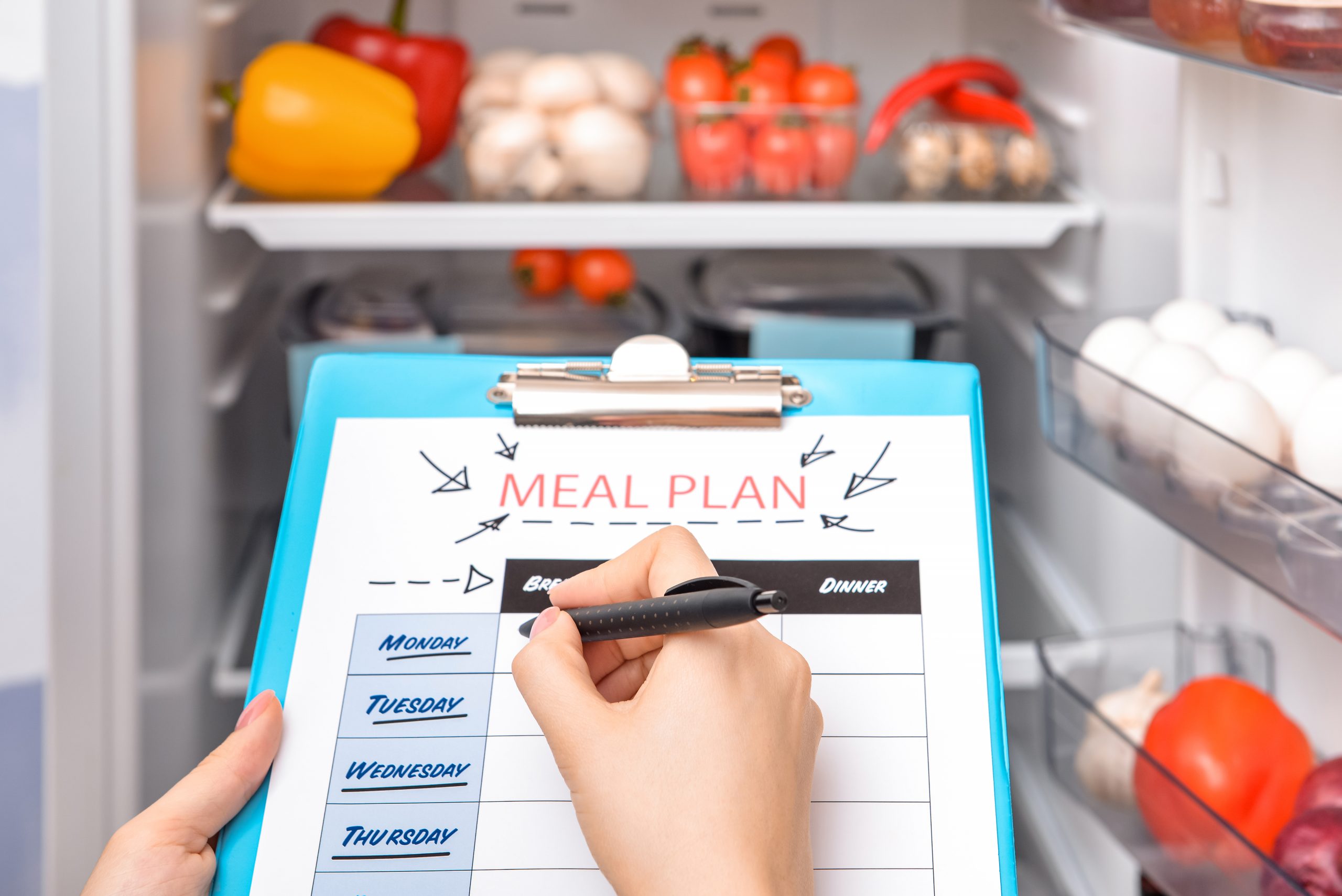Meal planning is an essential tool for anyone looking to lose weight. Planning ahead can help you make healthier food choices, save time and money, and stick to your weight loss goals. In this article, we’ll explore some tips for healthy meal planning for weight loss.
Plan ahead
Set aside time each week to plan out your meals and snacks. This can help you make healthier food choices and avoid last-minute trips to the drive-thru. Use a meal planning app or worksheet to help you stay organized.
Focus on whole foods
Choose whole, nutrient-dense foods such as fruits, vegetables, whole grains, lean proteins, and healthy fats. These foods are more filling and can help you feel satisfied for longer periods of time.
Portion control
Pay attention to portion sizes and use measuring cups or a food scale to help you stay on track. Eating too much of even healthy foods can lead to weight gain.
Prepare meals in advance
Prepare meals in advance to save time and ensure you have healthy meals on hand. Cook larger batches of meals and freeze leftovers for later use.
Keep healthy snacks on hand
Keep healthy snacks such as fruits, vegetables, nuts, and seeds on hand for when hunger strikes. This can help prevent unhealthy snacking and overeating.
Experiment with new recipes
Try new recipes to keep your meals interesting and avoid getting bored. Look for healthy recipes online or in cookbooks.
Keep it simple
Healthy meal planning doesn’t have to be complicated. Keep it simple by choosing easy-to-prepare meals and snacks that you enjoy.
Don’t skip meals
Skipping meals can lead to overeating and weight gain. Aim to eat three meals and two snacks per day to help keep your metabolism and blood sugar levels stable.
Stay hydrated
Drink plenty of water throughout the day to help keep you hydrated and feeling full. Avoid sugary drinks such as soda and juice, which can contribute to weight gain.
Seek support
Find a friend or family member to help you stay accountable and motivated. Join a weight loss support group or work with a registered dietitian to help you reach your weight loss goals.
In conclusion, healthy meal planning is an essential tool for anyone looking to lose weight. By planning ahead, focusing on whole foods, controlling portions, preparing meals in advance, keeping healthy snacks on hand, experimenting with new recipes, keeping it simple, not skipping meals, staying hydrated, and seeking support, you can develop a healthy meal plan that works for you. Remember to be patient and consistent, and don’t be afraid to adjust your plan as needed. With the right mindset and tools, you can achieve your weight loss goals and improve your overall health.
The Connection Between Weight Loss and Heart Health
Maintaining a healthy weight is essential for heart health. Excess weight can increase the risk of heart disease, stroke, and other cardiovascular conditions. In this article, we’ll explore the connection between weight loss and heart health.





